|




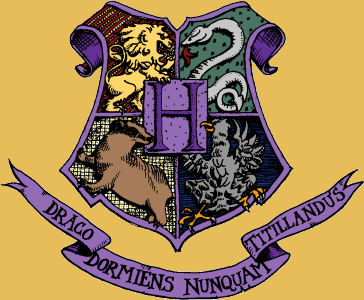
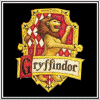

Which
Hogwarts house will you be sorted into?
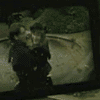


The Catholic Church is at it again
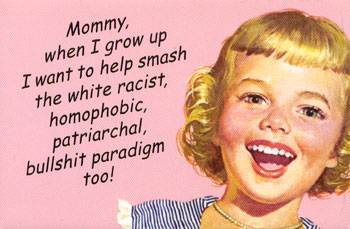
NEW
POPE HITS OUT AT HARRY POTTER BOOKS
New Pope BENEDICT XVI has blasted JK
ROWLING's HARRY
POTTER books for "undermining the soul
of Christianity"
Benedict, formerly CARDINAL JOSEPH RATZINGER is grateful
to HARRY POTTER - GOOD OR BAD author GABRIELE KUBY for revealing the hidden agendas behind the popular children's books.
He says, "It is good that you explain the facts of
Harry Potter, because this is a subtle seduction,
which has deeply unnoticed and direct effects in undermining the soul of Christianity before it can really grow properly
Leading Christian theologian UTA RANKE-HEINEMANN,
77, comments, "The Vatican feels it has the copyright on what is good and what is evil and it does not want anyone else infringing
its right to this monopoly.
"It will condemn anyone who tries to enter this territory
without its permission."
 

(I wonder why Pastor Brown is reading Harry Potter books if they offend him so much?)
By Pastor David L. Brown, Ph.D.
In Harry Potter’s world, witchcraft is presented as being exciting,
titillating and powerful. Witches are portrayed as friendly, positive, supportive and good! However, non-witches are presented
as being boring, dysfunctional, cruel, abusive, bigoted, and hateful.
Arthur Stuttaford catches some of this in his article
of the October 11, 1999 National Review. He writes,
"It's no surprise…when Rowling reveals leftish social prejudices
all too typical of the British intelligentsia. Harry's main rival at the school, nasty Draco Malfoy is-two strikes-both rich
and aristocratic. Meanwhile, the dysfunctional Dursleys are a caricature of the vicious bourgeoisie that would have delighted
Vyshinsky. They are contrasted with the poor-but-happy Weasleys, a wizard household that befriends Harry."
Page after page after page the reader’s minds are exposed to charms
and casting spells. Here is just a partial list of the ones I have come across –
Accio –
The summoning charm
Alohomora – A spell to unlock doors
Animagi/Animagus – By this spell wizard(s)
are able to transform into an animal form
Adava Kedavra – The killing curse
Cruciatus Curse –
Torture curse
Dissendium – A spell to open a secret passage
Expecto Patronum – A spell of
protection
Expelliarmus – A disarming charm
Finite Incantatem – A charm used to stop a student
commotion
Homorphus Charm – A charm which turns a werewolf back into human form
Impervios –
Charm to repel water
Locomo mortis – spell for the leg-locker curse
Lumos – a charm to light
the end of a magic wand
Mobiliarbus – Magical spell to move objects
Nox – A charm used to
turn out the light on a magic wand
Oblviate – A memory modifying charm
Peskidiksi Pesternomi –
Spell used to get rid of destructive Cornish pixies
Petrificus Totalus – Spell to cause someone to be motionless
Rictusempra
– A tickling charm
Serpensortia – A charm to summon snakes
Tarantallegra – A dancing
spell
Transfiguration – A spell which changes the nature of a person or object completely
Divination (fortunetelling) is commonly mentioned, taught
and practiced.
Here are a few examples.
Harry is called a "true seer" in The Prisoner of Azkaban,
with the gift of divination powers. This is confirmed in the 4th book when his clairvoyant powers are exercised. Further,
a professor assigns Harry and company the task of mapping out their astrological birth charts. That is divination as well.
There are other examples of divination…
Arithmancy – This is an actual early form of numerology
where divination is made through numbers, especially those associated with a person’s name.
Rememberballs -- Marble sized balls that turn red to tell
the holder if they have forgotten something.
Parseltongue – Snake language spoken by a dark wizard
in communication with snakes.
Mirror of Erised – This is a divination mirror with
writing around the frame that reads -- Erised stra ehru oyt ube cafru oyt on wohsi.
Hold the sentence up to a mirror and carefully read the reflection, ignoring the spaces. It reads: I show not your
face, but your heart's desire
|
|
Sorcery, which includes the mixing of magical potions
as well, is clearly present! |
It does not take long to realize that magical potions made with various herbs and fungi play an important part in the
witchcraft of Harry Potter and company. We read in book 1 – "Three times a week they went out to the greenhouses…where
they learned how to take care of all the strange plants and fungi, and found out what they were used for." In deed, Doreen
Valiente (a real witch) writes, "…witches would have an herb garden and use its products in their spells." Look at some of the ingredients used in the sorcery of the Potter books.
Thujone –
You will find this drug used in Potter potions. It is a dangerous psychedelic drug used to make a drink called Absinthe. Absinthe
was very popular in the 1700’s but has been illegal for sale or manufacture in the United States since March
16, 1915.
Mandrake
– This herb is used in Potter Potions as well. It is a real herb. The mandrake has long been known for its poisonous
properties. In ancient times it was used as a narcotic and an aphrodisiac, and it was also believed to have certain magical
powers. Its forked root, seemingly resembling the human form, was thought to be in the power of dark earth spirits. It was
believed that the mandrake could be safely uprooted only in the moonlight, after appropriate prayer and ritual, by a black
dog attached to the plant by a cord. Human hands were not to come in contact with the plant. In medieval times it was thought
that as the mandrake was pulled from the ground it uttered a shriek that killed or drove mad those who did not block their
ears against it. After the plant had been freed from the earth, it could be used for beneficent purposes, such as healing,
inducing love, facilitating pregnancy, and providing soothing sleep.
Monkshood
– Is another herb used in Potter potions. It is also called Aconite and wolfsband. The entire plant, including root,
herb and seed, is a deadly poison if taken in sufficient dosage. Aconite is generally used in a very dilute form
in homeopathy. If you are interested in the occult connection of homeopathy read my report located on my web page at ..\NewAge\na-med.htm
Wormwood –
Is the common name for a perennial herb or shrub whose leaves and flowers contain the toxic terpene thujone. In a Potter’s
potion it is mixed with ashphodel said to make a powerful sleeping potion so powerful it is known as the "drought of
the living dead." Just as Wormwood is a real herb (and dangerous) so is ashphodel. Though there are several types according
to the Encyclopedia Britannica, I believe the Potter variety is the Bog Asphodel (Narthecium ossifragum), also
of the family Liliaceae. It is a small herb growing in boggy places in Great Britain with rigid, narrow leaves and a stem bearing a raceme of small golden-yellow flowers.
The Elixer of Life – A potion that has the power to make a wizard or witch live forever.
Unicorn & blood drinking – There is most certainly an element of sorcery related to this creature in the Harry Potter story
because it is stated that if you drink its silvery blood, it will keep you alive for a limited time if you are near death.
Unicorn hair is also used in Potter potions. Let’s focus on the drinking of blood. In The Sorcerer’s
Stone, we read Professor Quirrell, possessed, comes "out of the shadows, a hooded figure…crawling across the ground
like some talking beast. The cloaked figure reached the unicorn, lowered its head over the wound in the animal’s side
and began to drink its blood."
Sorcerers are said to be deceivers, children of the devil, enemies of
righteousness. Why would you allow you children to be exposed to something that is perverted? Harry Potter books are perverted!!!
It is not possible to address all the aspects of witchcraft
doctrine and practice associated with the Harry Potter books. Let me quickly go over just a few more. There are the wizard
trading cards with the names taken from the Potter books, some who are real historical occult figures. Some of the names mentioned
in the books are – Arrippa, a noted founder of Alchemy; French occultist and alchemist Nicholas Flamel (picture next
page left) and wife Perenelle; There is also Paracelsus a 16th century German-Swiss alchemist, magician, physician. The list
could go on and on…Merlin and Margana the witch half-sister of King Arthur; Circe, a Greek god who turns men into animals,
Cliodna a Druid goddess of beauty and the otherworld.
Then there are the elementals, elemental demons or earth
spirits that witches actually believe exist. They are readily seen in the Potter books. Here are a few that I have run across
– water spirits (called Kappas), gnomes, pixies, banshees, elves and trolls. The
reader will also find ghosts, werewolves, vampires, centaurs, unicorns, phoenixs and merpeople all traditionally associated
with the occult. Not to mention the three headed dog summoned, reminiscent of Cerebus, the three-headed hound of Hell. And
what about Voldemort’s vile snake familiar in book #4. This huge snake’s name is Nagini. Do I need to remind the
reader that the serpent is one of the most ancient and pervasive symbols of the occult? "The Satanic serpent of the Garden
of Eden finds expression in most pagan systems as the Serpent God, from the ancient Egyptian god Set to the sacred cobras
associated with both Vishnu and Shiva in the Hindu pantheon to the ophiolarty or snake worship practiced over much of pagan
Africa and in Hatian voodoo. I do not think it is an accident that Rowling names the snake Nagini. In Sanskrit the name means
pertaining to cobras.
I have to agree with Steve Bonta who wrote in his article
Harry Potter’s Hocus-Pocus, "All of these images…seem to be derived from occult material, suggesting a sophisticated
knowledge of the occult on the part of the author." Indeed Joanne Kathleen Rowling has a sophisticated knowledge of the occult.
Even the London Times noted it in a July 12, 2000 article titled Muggle Adventures in
Potterland. The article reads, "Magical feats and spells, fantastic charms and startling metamorphoses, conjuring exploits…Harry
Potter and the Goblet of Fire…is crammed to the bursting with vanishings, flights, zombies, replicants, identity switches,
cryptozoological monsters," etc. To a restless, channel-surfing rhythm, Rowling switches tone, now teenage psychology, now
Alastair Crowley-ish Satanism."
In an 1999 interview Rowling admitted that she studied
witchcraft and mythology in order to write her books more accurately. She said, "I do a certain amount of research…so
when I’m mentioning a creature, or a spell…I will find out exactly what the words were, and find out exactly what
the characteristics of that creature or ghost were supposed to be." She went on to say that about one-third of what she had
written is based on actual occultism. Her books are based on the so-called real
occult!
Personally, I have to wonder if J. K. Rowling is a witch.
Another example is the key Satanic character in the books, Voldemort. She had subtly used her French to name her key evil
character, Voldemort. Voler means "to fly" or "to rob" and de means "of" and mort means "death" or "a dead man." Hence the
name means the flight of death or the flight of a dead man.
The Occult Doctrine of Dualism
Laced through ever one of Ms. Rowlings books is the yin-yang,
occult doctrine of dualism. This is the key doctrine of occultism. Dualism teaches that good and evil are warring equals or,
two sides of the same coin, as it were. Occultists believe that there are two equal and opposite sides of the "Force." There
is good in evil and evil in good and they are all from the same origin. The ramification of this heresy is that good and evil
are never clear-cut! This take on good and evil is vigorously reinforced in the Potter books by various twists suggesting
that Harry and Voldemort, despite being mortal enemies, are not really that far apart. Harry, in fact, during his infant encounter
with Voldemort, has actually taken on many of Voldemort’s traits, thereby absorbing some of his powers. He, like Voldemort,
has the rare gift of being able to speak with snakes, and also ends up with a wand manufactured from the same source as Voldemort’s.
The result of this is that, during one conflict between the dread foes, Harry’s and Voldemort’s wands cancel each
other out, and the encounter ends inconclusively. In Book Four, Voldemort is restored to full strength by absorbing a phial
of blood taken from Harry which, the Dark Lord explains, will impart to him those attributes that allowed Potter to resist
him as an infant. Finally, Harry’s most distinctive feature, the lightning-shaped scar on his forehead, was received
from Voldemort and is ultimately the source of Harry’s exceptional magical abilities.
This is dualism! Harry is part of Voldemort and Voldemort is part of Harry.
Another clear promotion of dualism is a statement by Professor Quirrell, the stuttering professor of Defense Against the
Dark Arts. In The Sorcerer’s Stone, Professor Quirrell said, "He is with me wherever I go. I met him when
I traveled around the world. A foolish young man I was then, full of ridiculous ideas about good and evil. Lord Voldemort
showed me how wrong I was. There is no good and evil, there is only power…" He goes on to say, "Since then, I have served
him faithfully."
Like Star Wars, the Harry Potter books promote the unscriptural doctrine
of the devil, dualism. Some protest when I say that. They claim that the struggle between good wizard Harry Potter and evil
wizard Voldemort is just like the classic struggle between good and evil that we have in the Bible! It is NOT! The
Bible declares God is wholly good.
In the Bible evil is always subordinate to good. God and
good are omnipotent (all powerful) and God and good ultimately win. Jesus, the Son of God is the victor and his followers
are more than conqueror. The devil is the loser and he and his followers will be damned to the Lake of Fire for all of eternity.
Biblical good and evil are distinct and separate. There is neither ambivalence nor ambiguity! Dualism on the other hand promotes
ambivalence, ambiguity and uncertainty. Dualism is one of the key doctrines of devils. There is not both good and evil wizardry
or witchcraft. All wizardry-witchcraft is evil and the Bible says so!
J. K. Rowling promotes
what the Bible condemns! These books awaken the reader’s curiosity about witchcraft, and occult powers and practices.
Joanne K. Rowling finds herself in the place of Simon the Sorcerer of the bible. She is using sorcery and bewitching the children!
To be sure Joanne Kathleen Rowling has offended many little
ones by exposing them and enticing them into the occult realm. It is really happening!
The truth is that the Harry Potter books have generated
so much interest in witchcraft that "The Pagan Federation has appointed a youth officer to deal with a flood of inquiries
following the success of the Harry Potter books which describe magic and wizardry. The federation says the Potter books, by
J. K. Rowling, and TV shows such as Sabrina The Teenage Witch and Buffy The Vampire Slayer, had probably sparked the new flood
of interest.
There is one more area that I will address briefly. That
is the allegation that Harry and his friends are "good" characters with "good" values. Nothing could be further from the truth.
Harry and Ron are rewarded when they break the rules. Headmaster Dumbledore says, "I seem to remember telling you both that
I would have to expel you if you broke any more rules." He goes on to say, "You will both receive Special Awards…let
me see—yes, two hundred merit points for Gryffindor."
Another illustration focuses on Hermonie. She is portrayed as a "good" character. However, Ron
and Harry do not like her, that is, until she lies to protect them. Then Ron and Harry take her in and make her a part of
their group. In Goblet of Fire dishonesty is glamorized and nearly everyone cheats throughout the Triwizard Tournament. Repeatedly
the so called "good" characters show no remorse for their evil actions.
The Bible warns that in the last days people will reject
biblical truths and believe the devil’s lies. In fact, they will be bewitched by occult fables. Harry Potters books
vividly illustrate this point.
Sorcerers are among those listed in "the roll call of
the damned’" who will be condemned to the lake of fire (Hell) for all of eternity.






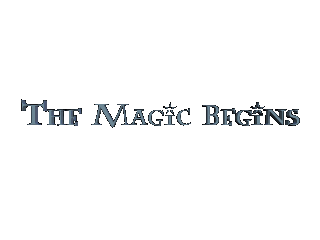
Pope Opposes Harry Potter Novels - Signed Letters from Cardinal Ratzinger Now Online
RIMSTING, Germany, July 13, 2005 (LifeSiteNews.com) -
In March 2003, a month
after the English press throughout the world falsely proclaimed that Pope John Paul II approved of Harry Potter, the man who
was to become his successor sent a letter to a Gabriele Kuby outlining his agreement with her opposition to J.K. Rowling's
offerings.
As the sixth issue
of Rowling's Harry Potter series - Harry Potter and the Half-Blood Prince – was released, the news that Cardinal Joseph
Ratzinger expressed serious reservations about the novels is now finally being revealed to the English-speaking world still
under the impression the Vatican approves the Potter novels.
In a letter dated
March 7, 2003 Cardinal Ratzinger thanked Kuby for her "instructive" book Harry Potter - gut oder böse (Harry
Potter- good or evil?), in which Kuby says the Potter books corrupt the hearts of the young, preventing them from
developing a properly ordered sense of good and evil, thus harming their relationship with God while that relationship is
still in its infancy.
"It is good, that
you enlighten people about Harry Potter, because those are subtle seductions, which act unnoticed and by this deeply distort
Christianity in the soul, before it can grow properly," wrote Cardinal Ratzinger
In a second letter
sent to Kuby on May 27,
2003, Cardinal Ratzinger "gladly" gave his permission
to Kuby to make public "my judgement about Harry Potter."
The most prominent
Potter critic in North America, Catholic novelist and painter Michael O'Brien commented to LifeSiteNews.com
on the "judgement" of now-Pope Benedict saying, "This discernment on the part of Benedict XVI reveals the Holy Father's depth
and wide ranging gifts of spiritual discernment."
O'Brien, author of
a book dealing with fantasy literature for children added, "it is consistent with many of the statements he's been making
since his election to the Chair of Peter, indeed for the past 20 years - a probing accurate read of the massing spiritual
warfare that is moving to a new level of struggle in western civilization. He is a man in whom a prodigious intellect is integrated
with great spiritual gifts. He is the father of the universal church and we would do well to listen to him."
English translations
of the two letters by Cardinal Ratzinger follow:
Joseph Cardinal Ratzinger
Vatican City
March 7, 2003
Esteemed and dear
Ms. Kuby!
Many thanks for your
kind letter of February 20th and the informative book which you sent me in the same mail. It is good, that you enlighten
people about Harry Potter, because those are subtle seductions, which act unnoticed and by this deeply distort Christianity
in the soul, before it can grow properly.
I would like to suggest
that you write to Mr. Peter Fleetwood, (Pontifical Council of Culture, Piazza S. Calisto 16, I00153 Rome) directly and to
send him your book.
Sincere Greetings
and Blessings, + Joseph Cardinal Ratzinger
 
With the release of the newest Harry Potter
book, the debate over its moral and religious implications has been revived. Christians are arguing that J.K Rowlings's fictional
tales are actually filled with true and accurate information on witchcraft, and that children will start casting real spells.
Such things are Satanic and cannot be allowed. Parents are protesting and books are being banned across the country.
As a Wiccan and a witch, I felt the need to make a statement:
The Harry Potter books have nothing to do with real Witchcraft
The only "real" witchcraft elements in the books, are the real stereotypes that have
dogged Witchcraft for decades. Flying around on broomsticks, pointed witches hats, and the shooting of lightning from magic
wands, to name a few.
Some of the core concepts
of Wicca and real witchcraft are absent from the world of Harry Potter:
Wiccans worship both a God and Goddess, though there is no mention of any form
of Deities at all in the Harry Potter series. Wicca is a religion after all, not just the act of casting spells. Why, there
is no spirituality in these books and movies at all!
Traditional Wiccans belong to covens. Though the Harry Potter
characters are grouped together at a school, there is clearly no coven groups to be seen.
True spells require practice, experience, and the focused control
of will. Shouting a phrase in Latin and waving a wand won't get you very far in the real world. Let's be realistic here, if
we witches could really perform magick in the same way it's done in the movies, the world would be a very different place.
As I searched the Internet looking for pro-Potter sites, I was
absolutely overwhelmed by the number of articles and sites dedicated to "exposing the evil truths about Harry Potter". What
surprised me even more was the blatent lies and false information they contain.
The biblical references used to back up their claims are questionable
at best, and all of them are focused on the evils of magick and Witchcraft. The connection between J.K Rowling's books and
Witchcraft is all in their heads. The 'experts' don't really know anything about Witchcraft at all, and it's a shame that
they are the ones yelling the loudest.
I doubt my little voice will be heard amongst the cacophony of
Christian fear and outrage. But hopefully, some people will actually stop and think about their claims before protesting these
books. My point here is not to debate the Christian position on Witchcraft, but remove harmless, fantasy novels from the fray.
We Witches are misrepresented enough as it is.
From Terri Paajanen,
Your Guide to Pagan / Wiccan Religion.
FREE Newsletter. Sign Up Now!

Was Jesus really a witch?
No single one of these reasons prove the “Witchiness” of Jesus, but taken as a whole, they make for a
compelling case!
1. Jesus criticized the hypocrisy and legalism of the religious status quo, and chose to embrace an alternative spiritual
path. (Matthew 23:1-36.)
In Jesus' day, the religious establishment included the Pharisees and
Sadducees, dominant factions in first century Judaism. Jesus' alternative path followed the radical teachings of his mentor,
John The Baptist.
Nowadays, in Europe and the Americas, the status quo is mainly Christianity; the path of the Goddess - Wicca - is one
of the most compelling of available spiritual alternatives.
Many people who embrace Wicca have the exact same criticisms of Christianity
that Jesus is said to have had about the religious establishment in his day. Hyprocisy,
legalism, blind obedience of the rules to the point of ignoring spiritual values like love, trust, and freedom. These
are the problems Jesus attacked in the official religion in his day, and that many Wiccans today see in the religious status
quo of our time.
Perhaps Jesus, were he here today, would join Wiccans in criticizing
mainstream religion and trying to find an alternative way.
2. Jesus was a psychic healer. (Luke 6:19; John 0:1-12.)
Luke comments that "all in the crowd were trying to
touch him, for power came out from him and healed all of them." And John recounts how Jesus made a magic healing paste by
mixing his saliva with soil from our Mother, the Earth.
For Jesus, healing was a central part of his spiritual
identity. Witches, likewise, rely on herbal wisdom, natural foods, and psychic practices to bring healing and comfort to themselves
and their loved ones.
Sadly, the Christian religion rarely encourages its
followers to take responsibility for their own healing, but rather colludes with a medical establishment that keeps people
passive in regard to their own wellness. Jesus the healer has much more in common with Wiccan healers than with church-going
"patients."
3. Jesus acknowledged the divinity within each person. (John 10:34-36.)
All he was doing was quoting the Psalms, but Jesus emphasized
it: "You are gods." Throughtout the Bible, Jesus uses mystical language to illustrate the essential unity between humanity
and divinity.
How sad that the church founded in his name lost that
sense of human divinity, and has instead stressed the "fallenness" and "separation" that keeps humanity alienated from the
divine.
Incidentally, this is an indirect affirmation of Goddess
spirituality, as well - for if we are gods, as Jesus quoting the scriptures insists, then both men and women partake of the
godly nature. Implying therefore that God emcompasses both the masculine and feminine dimension of life. So the "God" whom
Jesus worships incorporates both the God and the Goddess as revered by Wiccans.
4. Jesus lived close to nature. (Matthew 8:20; Mark 1:12-13, 3:13; Luke
4:42; John 18:1.)
Jesus took a vision quest in the wilderness; he loved
to pray in the mountains, slept in gardens, and made a point of telling his followers tht he had no house to live in.
Frankly, it's hard to imagine him driving an SUV or
worshiping in an air conditioned church. If Jesus were here today, I suspect he would live in an ecologically sustainable
community, and he would advocate a sacred duty to the Earth with the same zeal with which he advocated care for the poor and
the downtrodden.
5. Jesus believed in magic. (Matthew 7;7-11.)
Only he called it prayer. "How many of you, if your
child asks for a fish, will give them a stone?" "If you ask for it in my name, it will be done."
Church-goers often see magick as a different from prayer,
because prayer is timid and uncertain: "Not my will, but thine." By contrast, magick assumes that the Divine Spirit loves
us and wants to bless us in accordance with our highest desires.
When Jesus prayed, he prayed with confidence, not timidity.
And he taught his followers to do the same. Nowadays, magick may have fancy window dressings (light this candle, recite this
incantation, etc.) but it still comes down to the same thing: making a request for spiritual blessings.
Jesus' vision of prayer is like Wicca's vision of magick:
it is based on trust and love, unlike the prayer of church religion, which is based on fear, self-criticism and self-doubt.
6. Jesus could command the weather. (Matthew 8:23-27.)
Witches have a long-standing reputation for being able
to conjure up storms and otherwise control the weather. Jesus, like any accomplished weather-witch, possessed a similar set
of skills. He did this both actively (like when he calmed the storm out in the Sea of Galilee) and indirectly
(as he was dying, he caused darkness to reign in the middle of the day).
7. Jesus had a profound relationship with the elements. (Matthew 14:22-26; Luke 3:16; Luke 8:22-25; John 9:6.)
Jesus could walk on water; he could command the wind;
he baptized with fire, and he used the soil of the Earth to make healing pastes. His spirituality was primal and grounded
in the power of the elements.
Modern-day Christianity is abstract, sterile, and anti=septic.
It is a religion of books, words, and mental concepts. But Jesus, like most modern-day Wiccans, found vitality in the energies
of the natural world.
8. Like a shaman, Jesus could channel spirits. (Mark 9:2-8.)
One of the most profound stories in the Bible is that
of the transfiguration, when Jesus conjured the spirits of Moses and Elijah. To his followers, this demonstrated Jesus' authority
as a spiritual leader.
Later on, Jesus tells his followers that they will do
greater works than his (John 14:12); ironically, though, Christianity does not permit its followers to invoke or conjure
spirits. But invocation of benevolent spirits has been a part of shamanic spirituality since the dawn of humankind, and modern-day
Witches follow in this shamanistic tradition when they Draw Down The Moon and The Sun, calling the spirit of Goddess and God
into their circles.
9. Jesus was comfortable with sensuality and eroticism. (Luke 7:36-50.)
One night, while dining at a respectable home, Jesus
received a sensuous foot washing from a woman, who used oil and her hair to wipe the teacher's feet. The host and the other
guests were scandalized, but Jesus saw it as a perfectly lovely expression of affection and hospitality. In fact, when comments
were made to Jesus, he responded by saying basically, "What's your problem?"
Alas, the religion that bears his name has evolved into
an erotically-repressed spirituality, more like Jesus' uptight host than Jesus himself.
Paganism and Wicca, meanwhile, are spiritual systems
that celebrate sensuality, sexuality, and the basic goodness of pleasure. Jesus, who got criticized for being a pleasure lover
himself (Matthew 11:19), would no doubt be at home in Wicca's celebration of the goodness of nature and
the body.
10. In his own way, Jesus practiced the Wiccan Rede. (Matthew 5:21-22; Matthew 22:33; John 8:32.)
The core ethical principle in Wicca is the Rede: "if
you harm none, do what you will." There's two components to this teaching; non-harm and freedom. It's a basic principle; you
have spiritual freedom, but not to the point of harming yourself or others.
Compare this to several of Jesus' teachings. Matthew
tells us that Jesus was so committed to the principle of non-harm that he regarded the intent to do violence as bad as violence
itself. Meanwhile, John quotes Jesus as saying "Truth sets you free." But what is the truth that sets us free? The truth of
love, trust, healing, and divine grace; in other words, the universal truths that can be found in any spiritual path. The
opposite of harm is love. "Harm none" is another way of saying "Love your neighbor as yourself."
11. In his own way, Jesus advocated - Perfect Love and Perfect Trust. (Matthew 5:48; Luke 6:32-36; Luke 12;22-34.)
John quotes Jesus as saying "Do not let your hearts
be troubled" and "love one another as I have loved you." Throughout the Gospels, Jesus says "Do not be afraid." He suggests
his disciples "become like little children" - in other words, be trusting and open-hearted. It's such a simple message, and
today Wicca embodies the spirit of perfect love and trust; indeed, traditional covens require the phrase "Perfect Love and
Perfect Trust" as a password to gain entry into circle.
Christianity, meanwhile, preaches a message based on
perfect anger and perfect fear: God is wrathful, and unless a person is fearfully obedient, he or she will be tortured for
eternity. That's the opposite of what Jesus stood for. Love and trust leads to healing and liberation, whereas fear of judgment
leads to depression and spiritual passivity.
12. His enemies accused Jesus of being under the influence of demons. (John 8:48; John 10:20.)
It's an old tactic. When the people who have religious
power want to dismiss their critics, they accuse the critics of being demonically possessed. That's what the Pharisees said
about Jesus, and nowadays that's what the religious right say about Wicca.
Jesus was someone who loved the average person on the
street, but had little patience for religious bigotry and self-righteousness. No doubt Jesus would feel he has more in common
with Wiccans than with the fundamentalists who attack them.
13. Jesus was killed, unfairly, for his "blasphemy." (Mark 14:63-64.)
Thankfully, Wiccans nowadays don't get burned at the
stake. But tens of thousands of people - mostly women - did get killed in Europe and America for the "crime" of Witchcraft. Even if these people weren't Witches, the fact remains: they were brutally
murdered for religious reasons. Well -- so was Jesus.
Modern day Wicca looks to the victims of the Witch burnings
as heroes of the Goddess faith, just like Christians see in Jesus their own spiritual hero. Jesus, meanwhile, was the kind
of man who would rather side against the killers and the executioners. Given the fact that, throughout history, far more Christians
have killed Witches than vice versa, it's easy to see Jesus embracing the Goddess, working to heal her children, and calling
those who bear his name to repent of their violence.
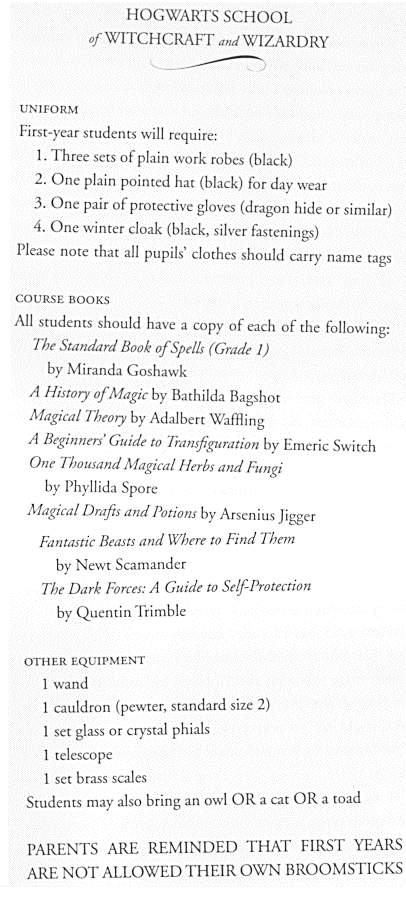

|

